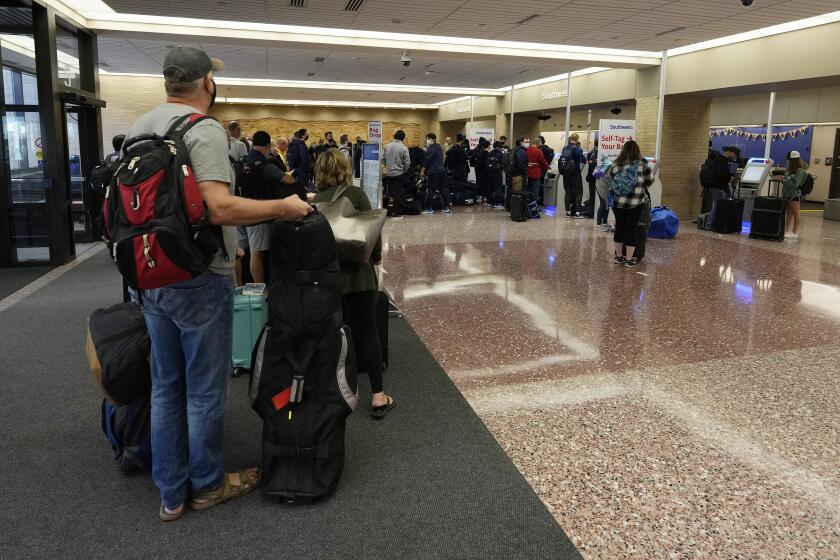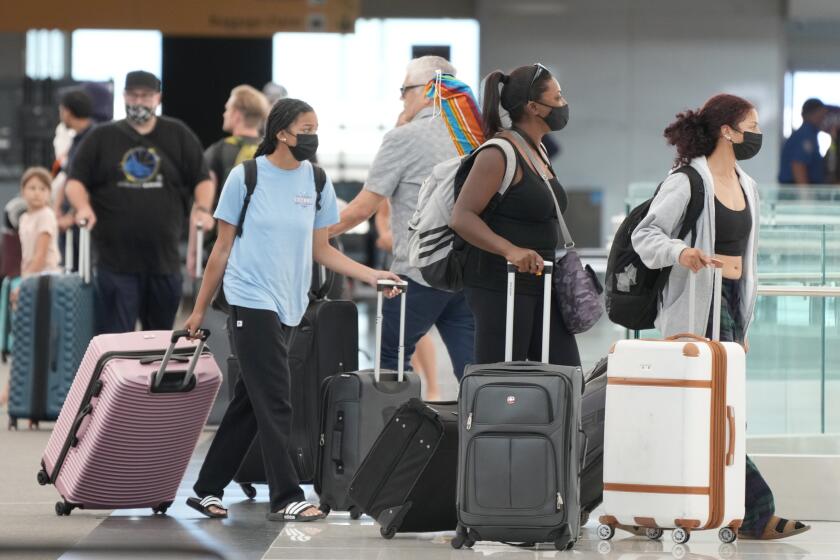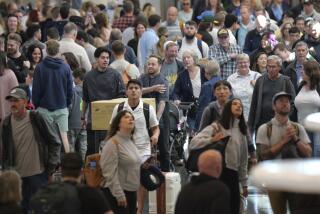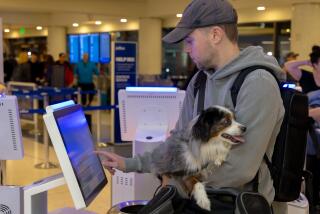Airfares hit highest level in years despite falling fuel prices
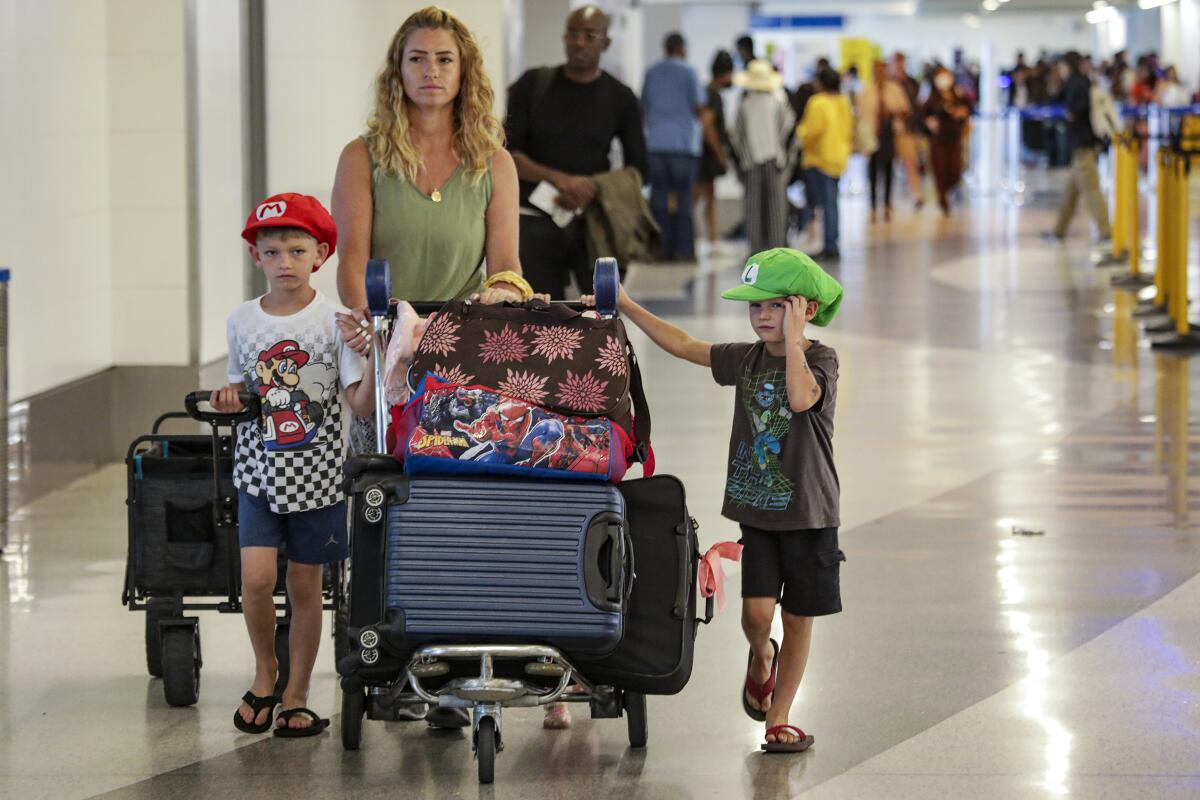
Jet fuel prices have been dropping dramatically since May, and the nation’s airlines now have more workers on staff than before the pandemic.
So Americans preparing for Thanksgiving and Christmas travel should expect lower airfares and fewer delays and cancellations, right?
Don’t get your hopes up.
Ticket prices for domestic and international flights scheduled around the Thanksgiving holiday are trending 22% higher than at the same time in 2019, with Christmas flights up even more, according to the travel site Hopper. They are the highest fares in about five years.
Another travel site, Cheapair.com, has a different set of numbers with the same message: Air travel will be pricey this holiday season. Airline prices for Thanksgiving are about 25% above 2021 levels, and fares for flights for Christmas and New Years are up 28%, Cheapair.com said in its annual holiday travel report.
The U.S. Department of Transportation proposed rule changes Wednesday to make it easier for airline passengers to collect refunds for canceled or delayed flights.
“This year, CheapAir.com is anticipating a busy holiday season with high prices, and recommends that travelers shop earlier than they might have pre-pandemic,” said Jeff Klee, the company’s chief executive.
The flight cancellations and delays that plagued air travel during the busy summer season have leveled off, but the problems that prompted the glitches — COVID-19 outbreaks among airline staff and an influx of inexperienced new airline workers — are not gone.
“Unfortunately we are not at the point where we can say we are past the worst of this,” said Henry Harteveldt, a travel industry analyst at Atmosphere Research Group.
A big factor in airfares is jet fuel prices, which represent about 30% of all expenses for the nation’s airlines. Jet fuel prices nearly doubled in April and May, partly because of the instability in the oil market caused by the Russian war in Ukraine. Since then, jet fuel prices have been dropping, sliding 14% in the last month, temporarily pushing airfares down in recent months, industry experts say.
Despite the drop in fuel prices, however, airfares are on the rise because demand for air travel is surging. Many industry experts describe it as “revenge travel” because Americans are trying to make up for the travel they missed during the pandemic lockdowns. The number of passengers passing through security screening gates at the nation’s airports in the last week is about 30% above the same period last year, according to the Transportation Security Administration.
“With two years of pent-up travel demand and missed holidays due to the pandemic, we’re expecting to see significant demand over the 2022 holiday season,” said Andrew Heritage, senior economist for Hopper. “In fact, more than half of Americans say they plan to travel for one or both of the holidays this year.”
The average domestic round-trip airfare peaked at $404 in May and dropped to $286 in August, according to Hopper. But for the upcoming Thanksgiving holiday, the average round-trip airfare is about $350, up 22% compared with 2019, according to Hopper. The average domestic round-trip airfare for Christmas is $463, up 31% from 2019.
In addition to high fares, holiday travelers have to worry about delays and cancellations.
During the summer travel season, airline passengers endured a surge in flight delays and cancellations, which airlines blamed on COVID-19 outbreaks among their workforces, staff shortages and a large contingent of novice workers. The number of complaints about airline service filed with the U.S. Department of Transportation skyrocketed by 260% in July from July 2019.
The summer travel season has been chaotic. Industry insiders put much of the blame on airline executives who scheduled thousands of extra flights to cash in on demand.
To reduce delays and cancellations, airline executives cut flight capacity about 16% this summer and have vowed to keep the number of flights to a more manageable level this fall. Airlines have also been pushing to restore the staffing levels that shrank when workers retired early or were furloughed during the pandemic. U.S. airlines employed about 460,000 full-time equivalent workers in July, about 2.4% more than in July 2019.
But industry experts say it will take more time for the airlines to train staff and add enough planes to recover from the pandemic and significantly reduce the number of delays and cancellations.
“The structural issue that’s been there is still going to be there,” said Jonathan Kletzel, an airline industry expert at PwC. “There is high demand and not enough supply.”
Airlines for America, a trade group that represents the nation’s carriers, said the industry is still wrestling with repercussions from the pandemic.
“Our industry — like others across the economy — continues to face a range of challenges, including a tight labor market and increased absenteeism as our nation emerges from the pandemic,” the group said in a statement.
The recent surge in airline prices has been noticed by air travelers, who are adjusting their travel plans to avoid getting hit too hard in the wallet.
“I’ve moved some travel from late November earlier because pricing around Thanksgiving was significantly higher,” said Peter Sasaki, a frequent flier and co-founder of a New York capital advisory firm. A Christmas holiday trip from New York to Texas is going to cost him about 20% more than last year, he said.
But Sasaki hasn’t been able to avoid the flight disruptions.
“I’ve had more delays in the past six weeks than expected that were due to maintenance or staffing,” he said.
Sasaki said he tries to have backup flight plans to lower the risk of being stranded by delays or cancellations and opts for long drives over short flights.
More to Read
Inside the business of entertainment
The Wide Shot brings you news, analysis and insights on everything from streaming wars to production — and what it all means for the future.
You may occasionally receive promotional content from the Los Angeles Times.
